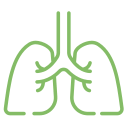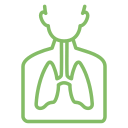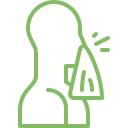Paediatric Treatment Services
Treatment Services
Scott has expertise in managing and treatment of problems associated with the lungs, breathing and sleep. This includes treatment of:

Coughing
Dr Burgess is an expert in diagnosing & managing coughs in children.

Asthma
Personalised asthma treatment plans to help your child breathe easier.

Wheezing
Targeted interventions to alleviate wheezing and improve respiratory function.

Shortness of breath on exertion
Regain confidence in physical activities with solutions for shortness of breath.

Trouble sleeping / insomnia
Sleep assessments and treatment to help your child or teen sleep well.

Snoring
Effective snoring interventions to minimise or stop the impact of your child’s snoring.

Restless sleep
Minimise restless sleep with personalised sleep investigations and treatment.

Nightmares and parasomnias
Dr Burgess provides expert guidance in managing nightmares and parasomnias.

Bedwetting
Empathetic care and effective strategies to support children struggling with bedwetting.

Hayfever
Comprehensive hayfever management to provide your child with allergy relief.
Investigations

Lung Function Testing
Including spirometry and exhaled nitric oxide testing
Location: Hobart
Children 5y and older can often perform accurate lung function testing (like all things children get the hang of doing lung function at different ages, but Dr Burgess will normally try once a child turns 5y). By blowing into equipment attached to a computer we can obtain information about their lung health. Common information provided includes how big a child’s lungs are, how quickly they can get air out (children with asthma have trouble getting air out quickly) and whether there is evidence of allergy within the lungs. Lung function testing provides useful information about how stable a child’s asthma may be. Although, lung function can be normal in a child with mild lung disease, especially if they are well at the time of testing.
If your child is well, it is better not to give Ventolin, Seretide, Symbicort, Breo or other asthma medication before testing. Symbicort and Seretide last 12h and Breo lasts 24h. If not sure, contact the reception staff, who can check with Dr Burgess

Skin Prick Testing
Skin prick testing for aeroallergens
Location: Hobart
Skin prick testing (allergy testing) can provide useful information especially in children with hayfever, asthma or who might be suspected of having symptoms due to an allergy.
Dr Burgess uses a special stamp which introduces allergens (liquid which contain substances which can cause an allergic reaction) into the very top layer of the skin. This is quick and not painful. But it can be scary for some children.
It is important that a child does not take an antihistamine (Zyrtec, Claratyne or other medicines containing an antihistamine) 24 hours before the test.
It takes a few minutes to do the test and the skin reacts within 10 minutes, when the size of the reaction provides insight into whether a child is sensitised (potentially allergic) or not.

Home Sleep Studies
Through Health Dynamics
Location: Hobart
Cost: $279
Sleep studies provide information about how well a child sleeps and focuses on their breathing and to a lesser extent their restlessness in sleep. It is most useful when trying to work out if a child who snores is having poor quality sleep because of their snoring. There are other indications as well. But sleep studies are not required for all children who have problems with their sleep.
A sleep study involves leads on a child’s head, chest (and sometimes legs) and an oxygen sensor on their finger.
In Hobart we are able to offer a “Home” sleep study. Essentially the equipment is attached to your child at Health Dynamics, they return home and the equipment is brought back to Health Dynamics the following morning. This type of testing is adequate for 80-90% of children. Toddlers, children with developmental delays and children with significant sensory issues are less likely to have a satisfactory sleep study at home. But every child is different. This service is best for children who are 3-4 years and older, who might be a little nervous but with gentle care would follow instructions and who are medically stable.
There is no Medicare rebate for a home sleep study. Health Dynamics offers a home study at a cost of $279, which is extremely competitive for a home study and Dr Burgess does not charge a fee for reporting the study. His only costs relate to the appointments.
Hospital based sleep studies are also available (see notes below).

Actigraphy
Watch which measures sleep
Location: Hobart
Actigraphy is a watch-like device which measures sleep. It provides less information than a sleep study. The device is worn for 5-7 nights and provides better information about sleep patterns and the amount of sleep your child is having.
This test is available for Tasmanian patients.
At this stage the only cost is postage of the device.

Hospital Sleep Studies
Location: Brisbane – Mater Private Hospital
Sleep studies provide information about how well a child sleeps and focuses on their breathing and to a lesser extent their restlessness in sleep. It is most useful when trying to work out if a child who snores is having poor quality sleep because of their snoring. There are other indications as well. But sleep studies are not required for all children who have problems with their sleep.
A sleep study involves leads on a child’s head, chest (and sometimes legs) and an oxygen sensor on their finger.
A hospital sleep study involves staying overnight, with a parent, in hospital. Compared with a home study we do measure more things (for example video, carbon dioxide levels, more brain waves), which is sometimes helpful. But for most children home and hospital sleep studies are equivalent. The main difference is support from staff overnight. This allows us to provide a service for younger children, those who need additional support or who are less medically stable.
For those with private health insurance the cost will depend upon their policy. There is often no out of pocket expense (except for travel to Brisbane). But there may be an excess payment to the health fund or the child may not be covered at all. It is advised to talk with your health insurance company about the specifics of your policy. If there is no insurance the costs will include travel to Brisbane and a hospital bed fee (which will be more than $1000).
At this stage hospital sleep studies are only available privately in Brisbane. Dr Burgess hopes to provide a service in Hobart in the future.

Bronchoscopy
Location: Brisbane only – Mater Private Hospital
A bronchoscopy involves introducing a flexible camera into the lung and usually collecting a sample of the airway secretion. It is helpful when trying to learn more about the anatomy of the upper airway and larger windpipes. Samples from the lung are especially helpful when managing infection which is not responding to oral antibiotics.
This test is performed under an anaesthetic. It might also be combined with a CT scan of the chest, blood collection and sometimes another procedure (for example by an ENT surgeon or gastroenterologist, depending upon the problems being managed).
Dr Burgess does not charge an “out of pocket” fee for a bronchoscopy. However, there may be other expenses including transport to Brisbane, health funds excess payments and anaesthetic fees. A quote for associated expenses can be arranged.
At this stage this service is only offered privately in Brisbane.
Book An Appointment With Dr Burgess
Contact the Hobart Paediatric Group using the details on the contact page and they will organise an appointment with Dr Burgess for you.
